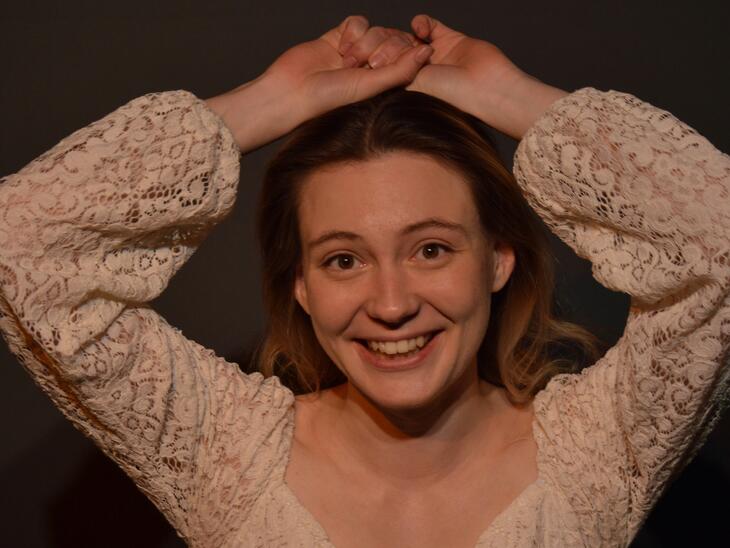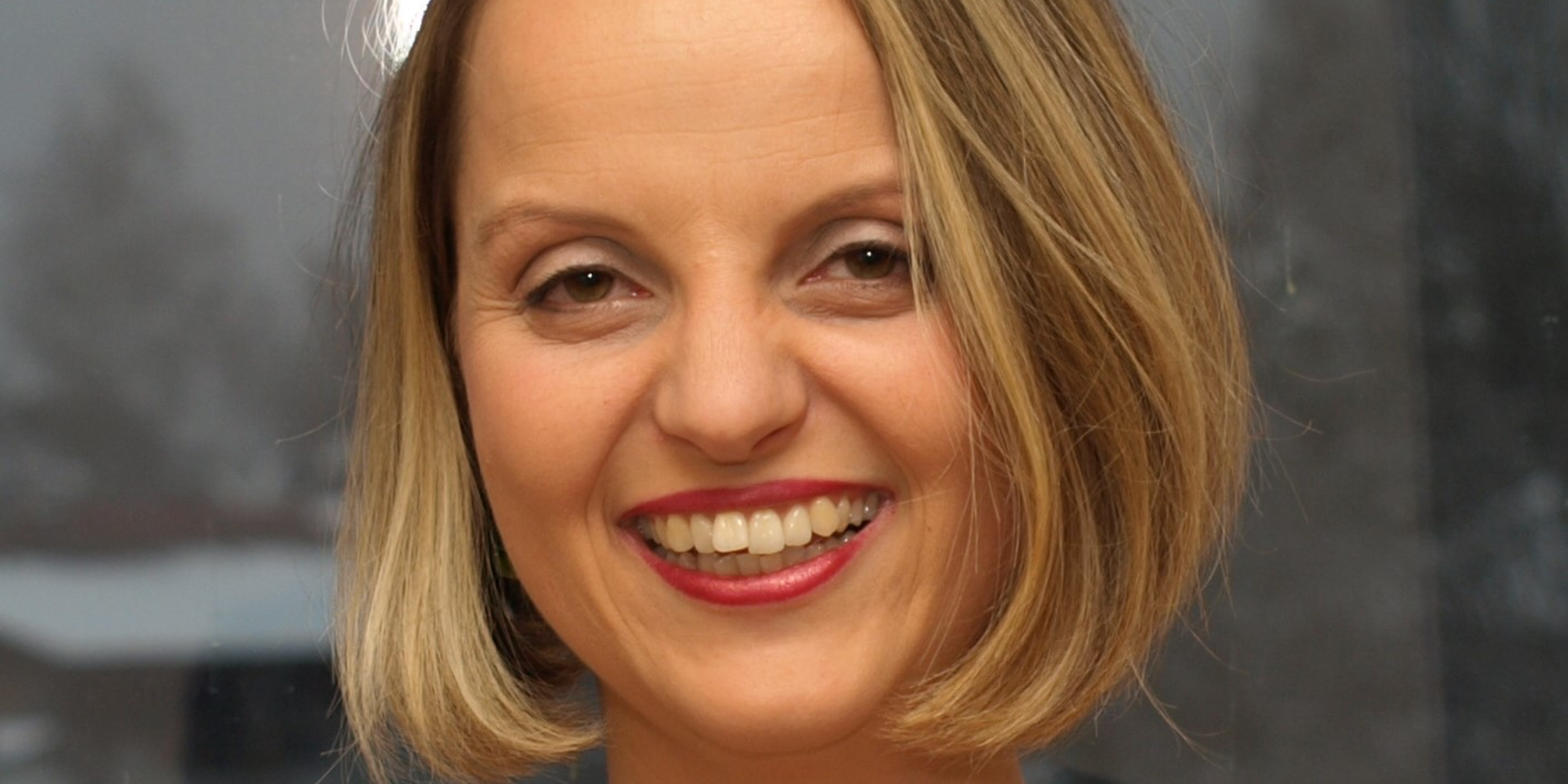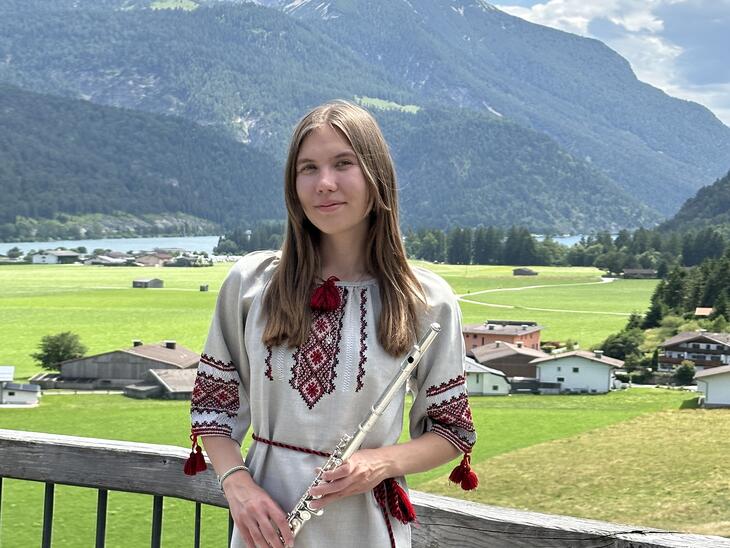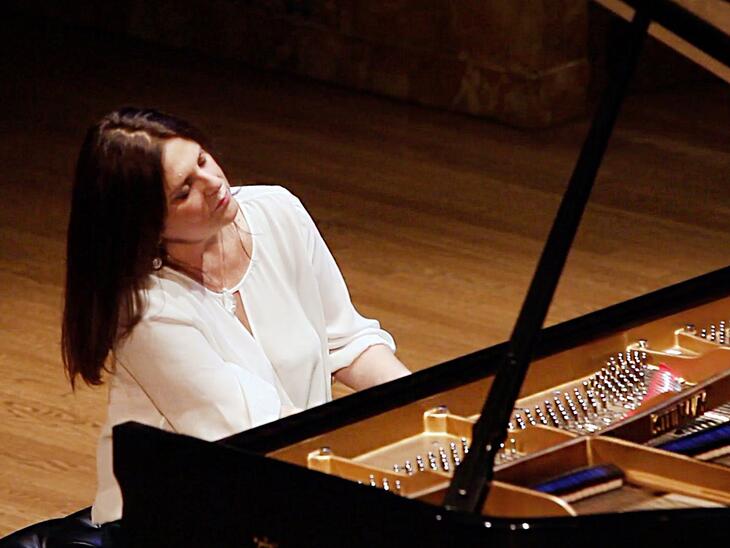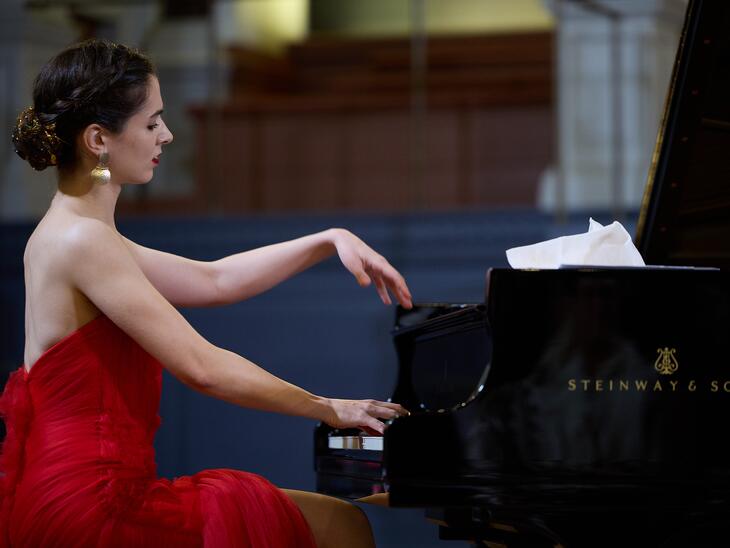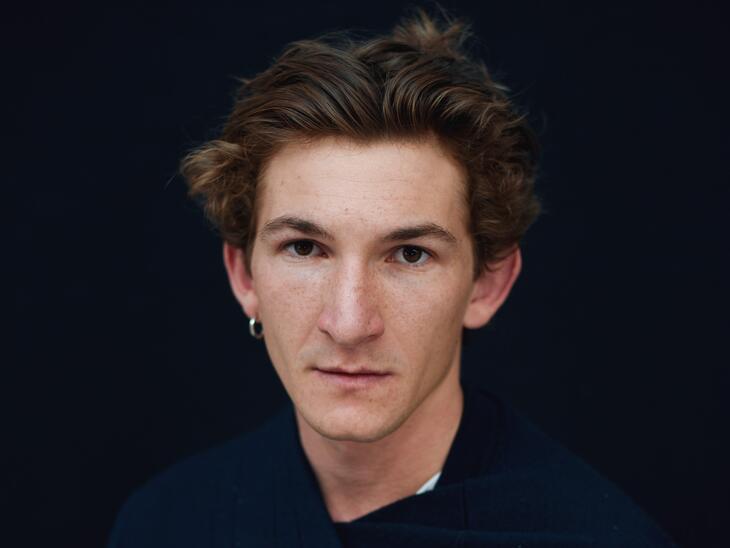What is the professional life of a singer and voice teacher like and what has changed in the last year?
Before Corona, I taught singing and group voice training at a music school. My two sons were still in kindergarten and I was active as a singer myself, in concert and in church music. That, of course, lies fallow at the moment. When I remember last March, where we gave a big concert at the beginning of the month and suddenly it was said, from now on only 100 concert visitors, it seems like from another world today! I then started teaching online for the first time. We were "thrown in at the deep end", so to speak. I didn't yet know how it would work, whether the "spark" would also jump online. I am a very empathetic person, which is a great advantage when teaching, because I can adapt well to my students and pupils. Blockages, fears or technical difficulties can be quickly identified and resolved through a combination of vocal knowledge, intuition and musicality. It actually worked online as well. Possibly in part because I was working with young adults. With children, it can be more difficult to hold attention. The feedback from my students* has also been very positive as it has worked really well.
What age group do you teach at music schools?
Mostly from high school to adults of all ages.
You started the "Online Coaching Project: fulfilled and successful as female, sensitive, classical singer" out of this situation, right?
Yes, the process is still ongoing. I first sought help and took an online course to learn how to do something like this professionally. I opened a Facebook group and have already gained my first "clients" for singing lessons or for the mentoring program. I am now focusing on very sensitive classical female singers in the international field.
This means that a digitalization process has taken place in vocal pedagogy, which was not planned in this way, but has developed as a result of the situation. You learn as a teacher yourself and at the same time create a new offering, right?
Yes, I also found it very nice that new paths have opened up that I could not have imagined a year ago. I've also learned a lot in this digitization process. I also really enjoy the international work that I experienced myself as a student in master classes. I now also have international students from Switzerland, Germany, Norway, Johannesburg, … and that without traveling and with two small children, one of whom is already school-age and with whom I now have to study at home!
Who are the target groups in your "online coaching project"? What are the age groups here?
For example, there are women who in some cases already have singing training but had to interrupt it, young women who are about to finish their singing studies or want to take the entrance exams, women with high sensitivity, students with special problems, but also older women who like to sing. Many want to get back in shape now, or stay, for the time after Corona. Some used the coaching to professionalize their German singing repertoire. Women with high sensitivity can learn to use this characteristic for themselves as a strength on stage. The range is wide. I have acquired the methods myself to improve stage presence. Professionally, I am at home in the German art song and its interpretation possibilities, the German opera repertoire, the German operetta and in church music. The coaching, in German or English, can be a preparation for an entrance exam, support a concert or audition or help singers who have often been affected by certain vocal or mental problems for years or who finally want to overcome simple stage fright. The issue of balancing family and career as an artist can also be a topic.
Currently, no master classes can be attended in Europe due to Corona. This is a common reason for online continuing education. The dream of studying voice in Europe is very difficult to achieve right now.
How can you think of vocal online classes or "voice coaching"? You offer mentoring, master classes and coaching for singers…
It starts with an initial conversation or a short, free "Voice Potential Analysis" to determine if working together is a good fit. After that I offer different packages. These range from short-term optimization of a performance planned in a few weeks, to regular coaching over several months and comprehensive, in-depth lessons, to master classes in which, for example, five female students are coached in a group. In this way, you can also get a taste of the topics, learn from colleagues, and it is less expensive than individual lessons or one-on-one voice coaching. The special thing is that the students are not only coached once a week, but also receive support and feedback during the week so that they can really develop their full vocal potential. Just recently, I was insanely happy with one of my students because she passed the entrance exam for the Pre-College at the Mozarteum University. And this despite the fact that we have only been able to work online since March.
This brings us full circle. You, as a Mozarteum graduate, prepare young up-and-coming singers for admission to the Mozarteum University. That is a very nice cycle!
For myself, it was a dream to get into the university and to be allowed to do vocal training. The inner urge to sing was there from a very early age. I couldn't help it. I started with school music at the university and later studied instrumental and vocal pedagogy. It wasn't always easy and I also had to grow. In the course of my education, I realized that I can relate very well to others, both to the audience and to music partners. I can take others with me and successfully pass on my knowledge. Thus, I have gradually come to know my strengths and have learned that it makes me very happy to successfully convey musical competence and to help voices and personalities achieve greatness.
Are there any special tips and tricks from your experience that you can pass on to young artists?
Well, if you have the inner desire, or even urge, to work as an artist*, you can't be discouraged. These times, in which art is so severely restricted, are of course not particularly encouraging. But as I have also experienced, new paths often open up that one could not have imagined before. Success is not just a performance at "La Scala" in Milan. Everyone has to find their own way and follow what they like to do and enjoy doing! Often one gets to hear that one's voice is too small, that one has too little "elbow technique" to survive in this tough business. One should also not take it to heart if one does not pass entrance exams or auditions. This is not a personal weakness. You just can't give up. I know a successful actress who took the entrance exam eight times. There are numerous similar examples. I don't mean that you should put on blinders and not take advice from others at all, but you shouldn't get discouraged if you don't succeed right away. You need perseverance and you can turn supposed weaknesses into strengths.
Was there anything missing from your education that you consider important today?
When I was a student, courses on artistic self-promotion were just beginning. What I still acquired myself, however, were scenic skills. As an educator, you also need these for teaching. Equally important are offers for mental strength and resilience.
